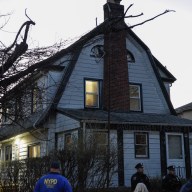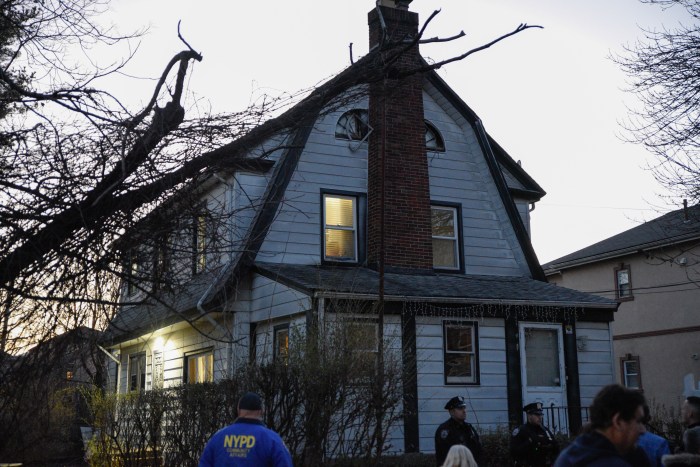By Chris Fuchs
Her father was a teacher. Her husband was a teacher. She was a teacher.
But Toby Ann Stavisky had also been a student for nearly her entire life, that is, before she was elected state senator from Flushing in November 1999, capturing 92 percent of the vote. But if asked, she'll probably tell you she's still a student: her thirst to learn is unquenchable.
Yes, she attended college, Syracuse University, initially to study math and engineering (a natural next step from Bronx High School of Science), but later switched to American History after meeting the muse of mathematicians, the arch-enemy to everyone else – calculus.
And, yes, she attended graduate school, Hunter and Queens' colleges, again to pursue her passion for American History.
But her primer for the seat she now holds – and if all goes well for her will hold for another two years – did not come from academe but instead from her marriage in 1964 to Dr. Leonard P. Stavisky, who served 33 years as state senator for the 16th District before he died in 1999.
“My husband was a legislator and I was his associate,” she says, sitting at her desk, slipping into her high-school-teacher mien she once adopted as a social studies instructor at Brooklyn Technical High School, her alma mater's rival, back in 1965.
Stavisky breathes politics, the way her husband did. She is not one given to hyperbole or histrionics. She is direct in her answers – sometimes breathtakingly direct. Asked what she enjoys most about politics, for example, she responds, “Helping people.”
That directness is what has helped her and her husband help people. After her son Evan was grown, Stavisky spent the next 10 years of her life actively learning from her husband, drafting legislation, studying what his constituents considered important. And she spent those 10 years earning not one penny from the state, nor did she expect to.
Together the Staviskys worked toward improving schools and social justice, toward establishing programs for older adults and new Americans. They have been outspoken advocates for making the City and State Universities of New York more affordable and ensuring that every public school student has a seat.
Stavisky may have been her husband's associate by trade, but their relationship changed after he suffered a stroke in the mid-1990s. Stavisky then had to care for her husband, who was confined to a wheelchair as well as manage the day-to-day happenings of a sprightly state senator. No small feat for anyone.
But Stavisky persevered, just as she had when she made her three-hour round-trip commute to Brooklyn Tech. Just as she had as a social studies teacher in a male-dominated department – there were two woman counting herself – teaching at a once all-boys high school.
Stavisky was bereft when her husband died in June 1999. She had lost a legislative partner; she had lost her husband. Determined to cement his legacy, Stavisky announced her intentions to run for her husband's seat only days after he died.
Stavisky has been a freshman state senator – the first woman state senator from Queens, no less – for almost eight months now after winning a special election in November. And she has earned bragging rights: With a bright, beaming smile, she noted that she had had her first bill passed on the last day of this year's legislative session.
“Everyone stopped and applauded,” she says. “For a freshman, that's unheard of.”
Stavisky is hopeful that she will have another two years to serve; her demeanor exudes that. As of this Tuesday, Stavisky had no Republican challenger. And her only foreseeable intraparty hurdle is fellow Democratic contender Josephine Jones, who may spark a primary if she files enough petitions to run.
A tentative ballot will not be set until the first week of August, the Board of Elections says. Regardless, Stavisky sees herself foremost as a legislator, a lawmaker with a precise ear tuned to her district. In a word, she's confident, for her history, she believes, speaks volumes.
































